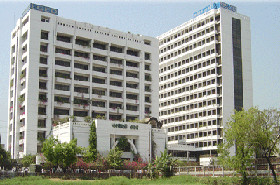Published: 12 September 2014
When TI-Bangladesh initiated a study three years ago on Local Government Engineering Department (LGED), the country’s lead agency for developing the rural infrastructure, the concerned authorities were reluctant to cooperate. This soon changed as a result of persistent efforts by TIB’s dedicated researchers following which LGED officials provided full cooperation by way of information sharing, organizing meetings to acquaint the researchers with the agency’s operation and procurement process including monitoring and control mechanisms. It also provided feedback and inputs into the draft report. Finally, the findings of TIB’s study titled ‘Local Government Engineering Department: Problems of Good Governance and the Way Forward’ was presented before senior LGED officials, local government experts and academics during a roundtable on 22 August, 2013. This study was jointly conducted by Nahid Sharmin, Program Manager (In-charge) and Shahzada M Akram, Senior Program Manager of TIB’s Research and Policy Division.Several rounds of discussions with the authorities |
and development partners, who had a keen interest in the area, followed. Under this first ever consulting project for TIB funded by ADB, TIB has been assigned the responsibility to provide technical assistance to LGED to: a) identify governance and fiduciary risks, and b) develop a road map to ensure good governance of LGED.TIB has been assigned the responsibility to provide technical assistance to LGEDIt will include achievable immediate, intermediate and long-term actions requiring further funding, to be developed and operationalized by LGED.The implementation of this initiative will take place in consultation with the LGD Ethics Committee chaired by the Secretary, LGD, where the LGED Chief Engineer is a member. |
|








